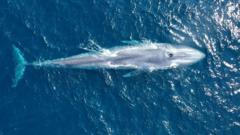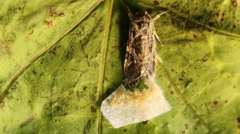In Timor-Leste, citizen scientists are transforming our understanding of pygmy blue whales, illuminating their behaviors and effects on marine biodiversity.
**Citizen Scientists Illuminate the Secrets of Timor-Leste’s Pygmy Blue Whales**

**Citizen Scientists Illuminate the Secrets of Timor-Leste’s Pygmy Blue Whales**
A local partnership with marine ecologists is revealing the reproductive behaviors of these elusive giants.
The steel-blue waves of the South Pacific cradle a dedicated group of local citizen scientists in the village of Subaun, Timor-Leste. Every year, during the migration seasons of October and November, fishermen Faustino Mauloko da Cunha and his son Zacarias venture out into the ocean in search of pygmy blue whales, one of nature’s most majestic creatures. Armed with binoculars and a telephoto camera, their sightings trigger an intricate network of research, involving drone footage and expert analysis led by marine ecologist Karen Edyvane.
Over the past decade, citizen scientists from Subaun have tracked an impressive 3,000 sightings of pygmy blue whales, revealing a wealth of previously unknown information about their lives, including intimate details of their reproductive behaviors. Edyvane's research, which began in 2014, has documented significant aspects of whale life, including a recent breakthrough: the first-ever underwater footage of a mother nurturing her calf.
What started as a grassroots initiative on social media has transformed into a vibrant collaborative effort. Locals post updates, share images via Facebook and WhatsApp, and participate in whale-watching tours. Through professional training in aerial surveys and camera operation, these community members have taken on key roles in marine research, greatly enhancing data collection while raising awareness about their local marine ecosystems.
This collaborative venture has led to a burgeoning interest in whale-watching tourism, with booking slots extending years in advance, yet concerns about unregulated tourism linger. Local non-profits are advocating for sustainable practices, while the government plans to use Edyvane’s findings to ensure conservation.
Local families, including the da Cunhas, are finding economic opportunities by integrating tourism with traditional livelihoods, creating communal meals from fresh catch and forming closer connections with visitors. Their commitment to education and conservation is evident, with Zacarias eager to impart knowledge to tourists while promoting whale safety.
Edyvane emphasizes the critical role of citizen scientists, stating, "The combination of accessible technology and social media has opened doors to insights that may have previously gone unnoticed," granting scientists a clearer picture of the ocean's mysteries from the shores of Timor-Leste. With this evolving movement of citizen science, the once-elusive pygmy blue whales are gradually becoming keys to sustaining the delicate balance of marine life in their migratory paths.
Over the past decade, citizen scientists from Subaun have tracked an impressive 3,000 sightings of pygmy blue whales, revealing a wealth of previously unknown information about their lives, including intimate details of their reproductive behaviors. Edyvane's research, which began in 2014, has documented significant aspects of whale life, including a recent breakthrough: the first-ever underwater footage of a mother nurturing her calf.
What started as a grassroots initiative on social media has transformed into a vibrant collaborative effort. Locals post updates, share images via Facebook and WhatsApp, and participate in whale-watching tours. Through professional training in aerial surveys and camera operation, these community members have taken on key roles in marine research, greatly enhancing data collection while raising awareness about their local marine ecosystems.
This collaborative venture has led to a burgeoning interest in whale-watching tourism, with booking slots extending years in advance, yet concerns about unregulated tourism linger. Local non-profits are advocating for sustainable practices, while the government plans to use Edyvane’s findings to ensure conservation.
Local families, including the da Cunhas, are finding economic opportunities by integrating tourism with traditional livelihoods, creating communal meals from fresh catch and forming closer connections with visitors. Their commitment to education and conservation is evident, with Zacarias eager to impart knowledge to tourists while promoting whale safety.
Edyvane emphasizes the critical role of citizen scientists, stating, "The combination of accessible technology and social media has opened doors to insights that may have previously gone unnoticed," granting scientists a clearer picture of the ocean's mysteries from the shores of Timor-Leste. With this evolving movement of citizen science, the once-elusive pygmy blue whales are gradually becoming keys to sustaining the delicate balance of marine life in their migratory paths.























